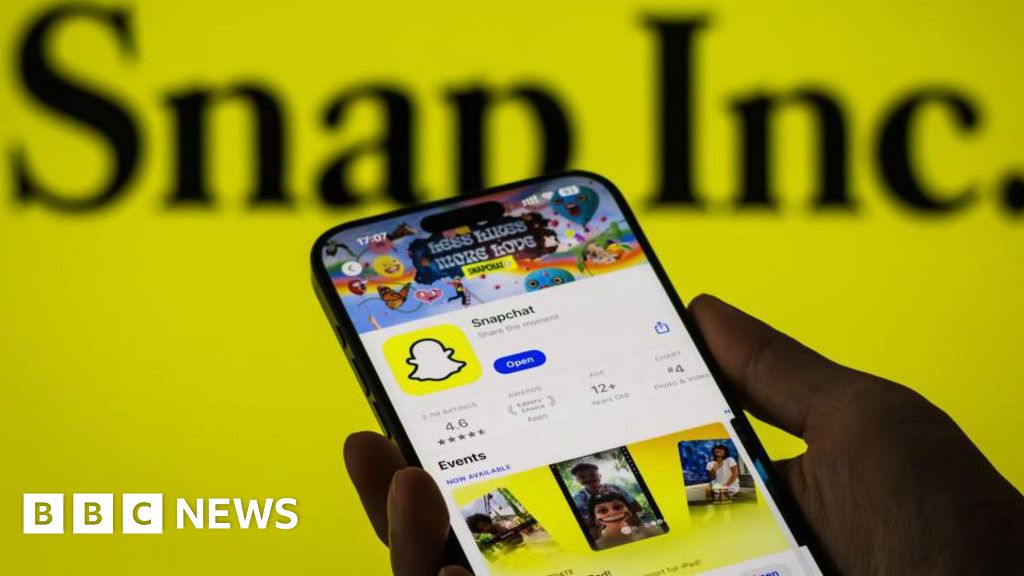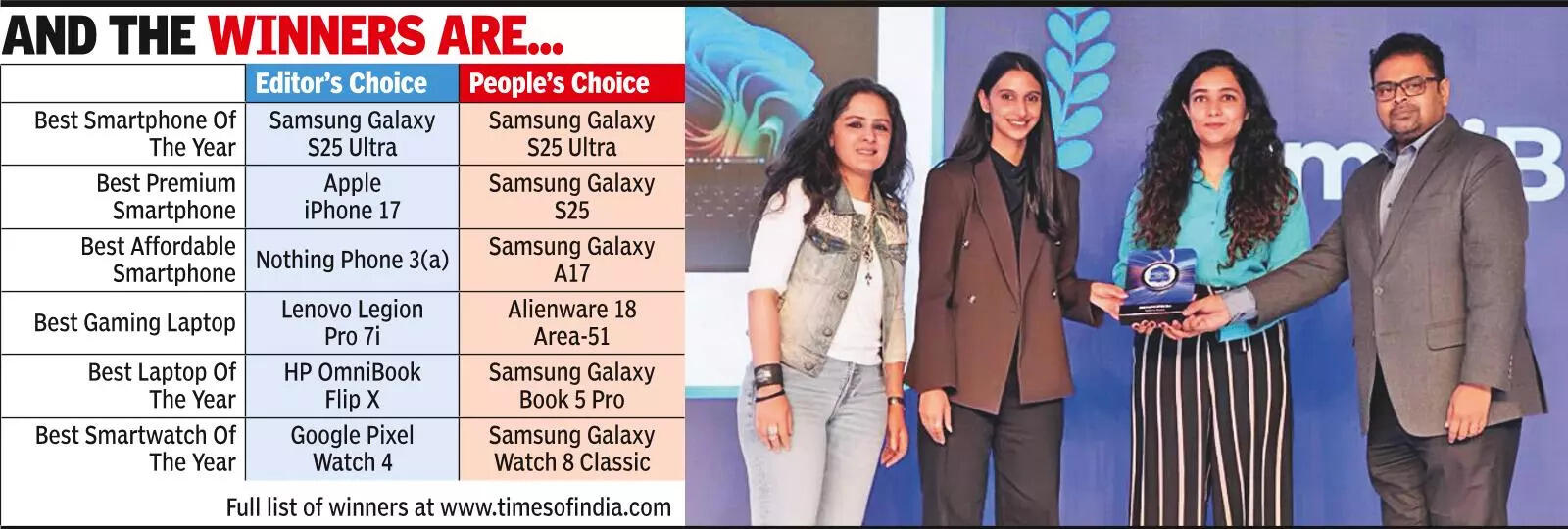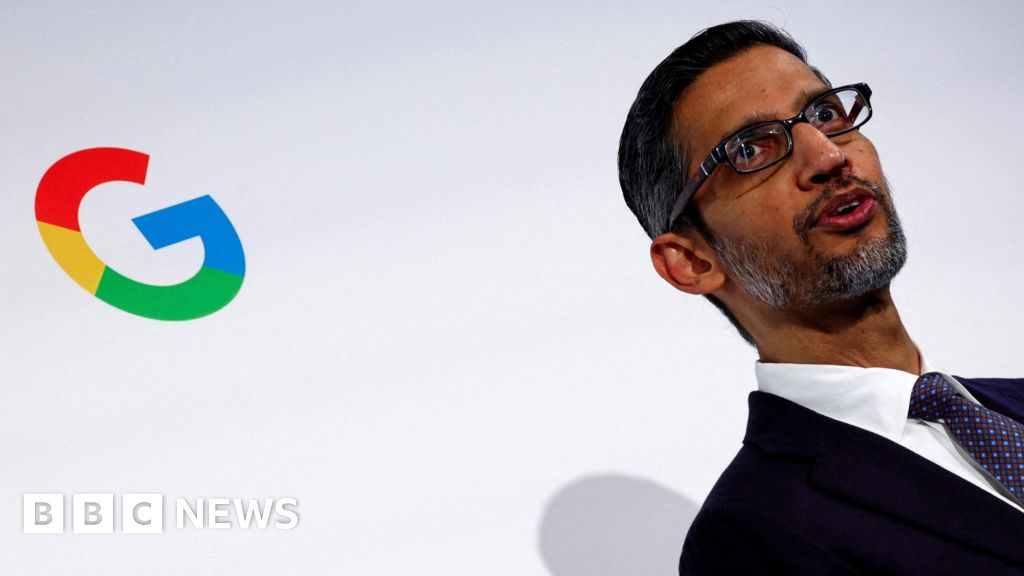Business
Snapchat users share fury at upcoming fees for Memories storage

Liv McMahonTechnology reporter
 Getty Images
Getty Images“Half of my life is on this app and now they expect us to pay for it.”
One-star reviews and a sense of injustice have dominated online discussion since the popular messaging app Snapchat became the latest tech firm to put a price tag on a service people previously enjoyed using for free.
The app’s parent company Snap announced in September it would start charging people if they have more than five gigabytes worth of previously shared images and videos saved as Memories.
For many, these retro posts act as a window to the past – leading some to accuse the firm of “corporate greed” in posts on social media and negative reviews on Google and Apple’s app stores.
Snap has compared its paid storage plans to those provided by Apple and Google for smartphones.
And as an alternative for those who don’t want to pay, users can download their Memories, which for some span tens of gigabytes of data, to their device.
The firm told the BBC only a small number of users would be affected by the changes.
It also acknowledged it was “never easy to transition from receiving a service for free to paying for it” – but suggested it would be “worth the cost” for users.
Many criticising the move online seem to disagree.
An online petition dubbed the fee a “memory tax”, with commenters calling it “dystopian” and “ridiculous” – while one person threatened never to use the app again.
Meanwhile, in a one-star review on the Google Play store, a person calling themselves Natacha Jonsson said it felt “very unethical”.
“If I know millennials right, most of us have years worth of memories on Snapchat,” they said.
“And most of us only kept the app mainly for that reason.
“5GB is absolutely nothing when you have years worth of memories… Bye Snap.”
And Guste Ven, a 20-year-old journalism student in London, shared on TikTok her plans to delete the app.
Allow TikTok content?
“I decided that I needed to download all my memories as soon as I could,” she told BBC News.
“Almost all of my teenage years have been documented through my Snapchat memories, all of the photos in there are really important to me.
“It just doesn’t make sense to start charging people for something that has been free for so many years.”
Snapchat has not yet said how much storage plans would cost in the UK – only that they are part of a “gradual global rollout”.
But 23-year-old Amber Daley, who also lives in London, said in a post on TikTok she would be “distraught” by such charges.
Allow TikTok content?
Amber told the BBC the app had become “a part of everyday life” since she started using it in 2014.
While she said she understood the platform needed to make money, Amber suggested the Memories feature means more to users than the company may have realised.
“I think it’s quite an unfair move to charge your customers who have been loyal and devoted,” she said.
“These aren’t just called Memories, these are our actual memories.”
‘Emotional artefacts’
Companies deciding to charge users for a service that was previously free is nothing new, and millions pay for services like iCloud and Google Drive to backup their photos and videos from their smartphone.
The reality of storing data in the cloud – which some in the tech industry like to refer to as simply “somebody else’s computer” – is it costs money.
“Hosting trillions of Memories on Snapchat isn’t a trivial amount,” social media consultant Matt Navarra told the BBC.
“Snapchat has to try to find a way to cover the cost of storage, bandwidth, back-ups, content delivery, encryption – all that stuff.”
 Bloomberg via Getty Images
Bloomberg via Getty ImagesBut Mr Navarra said introducing fees for a service that had previously been free, and users had been encouraged to use as such, may feel like a “bait and switch” for some.
“Moving the goalposts after people have built this huge digital archive doesn’t really sit right,” he said.
And for many, he added, “Memories aren’t just data dumps, they’re emotional artefacts”.
The feeling was shared by those leaving critical reviews, with one person calling their Snapchat photos and videos “the most precious thing to me”.
“[Memories] have every aspect of my life within them from celebrations of new family members’ births, mourning of passed loved ones, memories with friends/family, [and] my whole teenage years,” they wrote.
Dr Taylor Annabell, a postdoctoral researcher at Utrecht University in the Netherlands, said Snapchat’s move shows the implications of commercial platforms being used to store sentimental personal content.
“They benefit from this trust, interdependence, and presumption of never-ending access, which even incentivises some users to remain with the platform or continue to use it in order to scroll back through their archive,” she told the BBC.
“But these are not benevolent guardians of personal memory.”

Business
Gadgets Now Awards 2025 recognise tech excellence – The Times of India

NEW DELHI: The Times of India Gadgets Now Awards 2025 celebrated last year’s standout gadgets at an event on Monday where technology met glamour. The event drew an eclectic gathering of distinguished guests who came together to recognise technological excellence across key categories, including smartphones, smartwatches, audio products, televisions and more.This year, the Awards that are in its 6th edition went a step further and also recognised India’s leading influencers and creators who are redefining the tech content landscape.

The winners included Samsung Galaxy S25 Ultra, which scored a double win as the Best Smartphone Editor’s Choice and Popular Choice.Apple iPhone 17 was adjudged the Best Premium Smartphone Editor’s Choice, while Samsung Galaxy S 25 won the Popular Choice in the same category.Samsung once again picked up 2 awards as Galaxy Z Fold 7 was crowned the Editor’s Choice and Popular Choice winner in the Best Foldable Smartphone category.Samsung Galaxy Book 5 Pro won the Editor’s Choice Best AI-powered gadget, while Neosapien Neo 1 was the Popular Choice winner.
Business
Google apologises for Baftas alert to ‘see more’ on racial slur

Google said the news alert was an error that should not have happened.
Source link
Business
Trump’s new global tariff comes into effect at 10%

The global levy comes in at 10%, lower than the rate the president had threatened at the weekend.
Source link
-

 Entertainment1 week ago
Entertainment1 week agoQueen Camilla reveals her sister’s connection to Princess Diana
-

 Tech1 week ago
Tech1 week agoRakuten Mobile proposal selected for Jaxa space strategy | Computer Weekly
-

 Politics1 week ago
Politics1 week agoRamadan moon sighted in Saudi Arabia, other Gulf countries
-

 Entertainment1 week ago
Entertainment1 week agoRobert Duvall, known for his roles in "The Godfather" and "Apocalypse Now," dies at 95
-

 Politics1 week ago
Politics1 week agoTarique Rahman Takes Oath as Bangladesh’s Prime Minister Following Decisive BNP Triumph
-

 Business1 week ago
Business1 week agoTax Saving FD: This Simple Investment Can Help You Earn And Save More
-

 Tech1 week ago
Tech1 week agoBusinesses may be caught by government proposals to restrict VPN use | Computer Weekly
-

 Sports1 week ago
Sports1 week agoUsman Tariq backs Babar and Shaheen ahead of do-or-die Namibia clash







